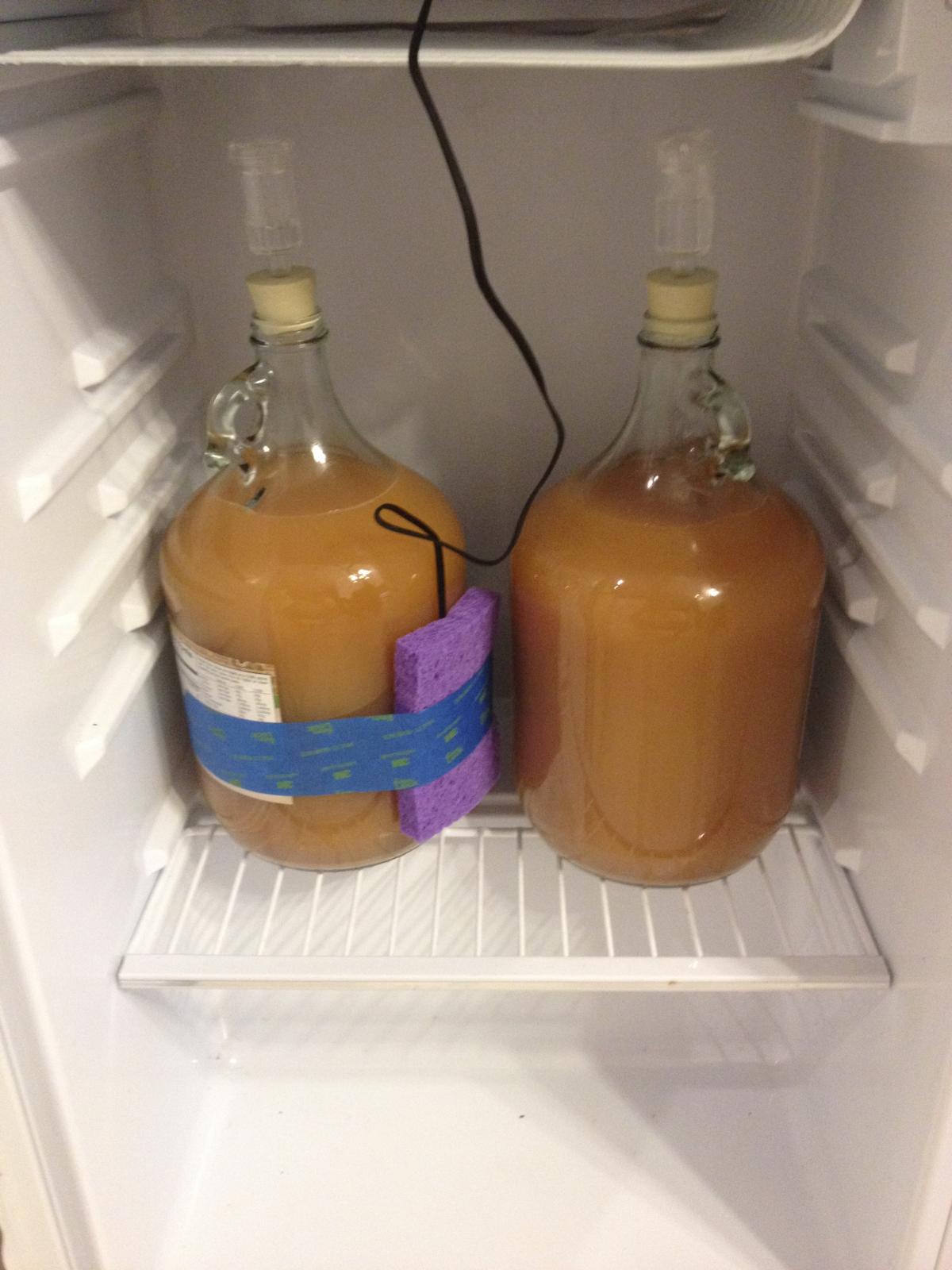First let me state that I am new to home brewing and cider making. My first attempt at home brewing ended in a sticky mess down my kitchen cabinet and all over my floor. The nice part is the house smelt great IMO.
Fast forward almost 1 year. Yesterday, I started fermenting my first 2 batches of hard cider. I used 2 1-gallon jugs of 365 Organic Apple Juice. I added 1/2 pectic enzyme to each and let it rest for 2 hours. Next, I aerated the crap out of the each container and split a package of Safale S-04 between them. I also added 1.5+ tsp of yeast nutrient to each jug. Finally capping with an airlock. OG was 1.056. Fermenting @ 62.6f(17c) within 18 hours I started seeing activity in the airlock.
My plan
Let one batch ferment out completely with nothing added. Trying to get a baseline.
The other batch I was going to back sweeten with one can of frozen juice concentrate prior to bottling then cold crashing after a couple days once PET bottles are tight. I know that this could cause bottle bombs but as long as I refrigerate should I need to worry?
My plan is to leave them in the fermenter about 3 weeks. I will monitor SG at that time and will let them continue as needed. Is it realistic to expect these drinkable by Christmas? I was hoping to share with friends.
Any and all advice welcome
Cheers


Fast forward almost 1 year. Yesterday, I started fermenting my first 2 batches of hard cider. I used 2 1-gallon jugs of 365 Organic Apple Juice. I added 1/2 pectic enzyme to each and let it rest for 2 hours. Next, I aerated the crap out of the each container and split a package of Safale S-04 between them. I also added 1.5+ tsp of yeast nutrient to each jug. Finally capping with an airlock. OG was 1.056. Fermenting @ 62.6f(17c) within 18 hours I started seeing activity in the airlock.
My plan
Let one batch ferment out completely with nothing added. Trying to get a baseline.
The other batch I was going to back sweeten with one can of frozen juice concentrate prior to bottling then cold crashing after a couple days once PET bottles are tight. I know that this could cause bottle bombs but as long as I refrigerate should I need to worry?
My plan is to leave them in the fermenter about 3 weeks. I will monitor SG at that time and will let them continue as needed. Is it realistic to expect these drinkable by Christmas? I was hoping to share with friends.
Any and all advice welcome
Cheers




















![Craft A Brew - Safale BE-256 Yeast - Fermentis - Belgian Ale Dry Yeast - For Belgian & Strong Ales - Ingredients for Home Brewing - Beer Making Supplies - [3 Pack]](https://m.media-amazon.com/images/I/51bcKEwQmWL._SL500_.jpg)






































